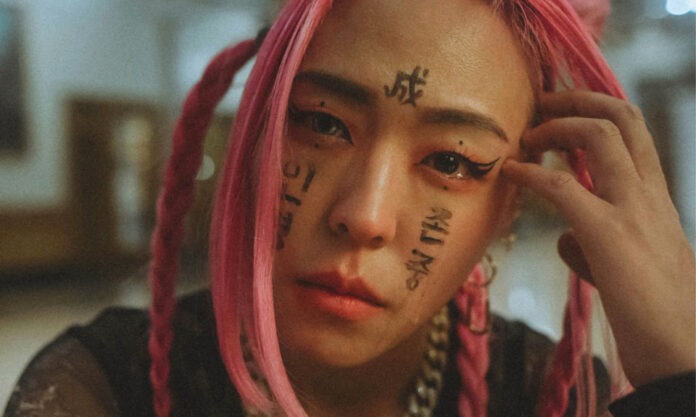I must confess from the get go that I don’t have any tattoos. I flirted with the idea of getting song lyrics in my teenage years; I would have gone for somewhere understated, like a tricep or inner thigh. But my favourite bands at the time were The Libertines, The Cribs and Muse, so the inking would have been something pseudo-intellectual or straight-up emo.
I would have ended up with, “I think I’m drowning, asphyxiated”, or, “Wouldn’t it be nice to be Dorian Gray just for a day?”, across my body, forever.
I’m thankful, sometimes, I was such a hesitant teen; getting a tattoo is a lifelong commitment, and is, as with so much these days, part of a larger picture of cultural ebb and flow.
Now, living in Brighton on the south coast of the UK, I’m surrounded by body art. Brighton has long been a hub of creativity and individuality. It is well-known for being one of the most progressive cities in the UK, with all the benefits and comical sights that can bring. The city’s bohemian spirit has made it something of a hotspot for tattoo enthusiasts and artists.
Unfortunately, this doesn’t mean the quality of tattooing is any higher. Brighton’s tattooed populace has its fair share of faded anchors, muddled blocks of text (poetry? Hard to tell…) and faces inkily smeared across chests and calves, somehow looking larger than life and diminished at the same time.
Something I’ve been pleased to mostly avoid is the spectacle of Chinese characters tattooed onto people, just for the look.
This is like the trend in China to print random English words onto clothes, just on steroids. We’ve all had a chuckle when a passer-by has an illegible string of letters on his clothes that might just look like “Giorgio Armani” if you squinted, but that’s all it is; a chuckle.
When someone with little-to-know knowledge of Chinese characters chooses to have one, or some, tattooed onto their body, I have the urge not to chuckle but to cringe.
The problems are legion. While a person may think they know the translation and meaning of the character(s) they’re choosing to share their bodies with, Chinese characters can have multiple layers of meaning, or change depending on context. Getting a tattoo based on purely aesthetics alone with a surface level understanding of the meaning of the character could lead to an embarrassing encounter with a fluent Chinese speaker/reader.
Making matters worse, if the character itself is not inked well, it could easily look like another character, or just like it’s been drawn by a sloppy child. Having a tattoo artist with limited knowledge or experience with Chinese characters could lead a relatively simple tattoo, “力” for “strength”, to end up looking like “刀” for “knife”, or even “办” for “manage”, if the artist got creative.
Then you’re left with the character equivalent of a word-soup T-shirt, just on your body, for the rest of your life.
So, how about in China? During my time there, I felt that attitudes were shifting, in line with global trends as well. In China, and even more so in Japan, tattoos were associated with criminality and social deviance. There’s always been a strong counter-culture element associated with the act of getting a tattoo, enforced by the image of the “punky” teenager.
But in Japan, the associations are more sinister; members of organised crime groups such as the Yakuza are typically heavily tattooed, so body art came to be associated with trouble.
While attitudes are changing, I do remember, around 10 years ago, translating a sign outside an onsen (hot springs) on my visit there, stating tattoos were forbidden.
While the connotations are not so deep-set in China, I just don’t recall seeing as many tattoos as I would in the UK. Luckily, this means I never saw the reverse of the debacle that is the “Westerner with a Chinese tattoo”.
I do dread to think that someone, somewhere might have decided that his favourite T-shirt logo would look great across his chest, permanently.
And while attitudes might be loosening somewhat among younger generations and those on the fringes of society, there are trends in the other direction too.
In 2017, the State Cyberspace Administration made it illegal to show tattoos during live-streaming or in videos posted to social media. The 2021 ban on the Chinese national team getting tattoos, and advice for those with tattoos to remove them, is another case in point.
And in 2022, a crackdown was announced on establishments tattooing under 18s. I feel like a lot of parents probably didn’t disagree with this one!
Ultimately, tattoos are another form of art and self-expression. Art, culture, identity (and, yes, tattoos!) are the arenas in which vast social forces gain and give up influence and power.
While the decision of what to do with one’s body should always be your own, it should be informed, thought-through and cognisant of its place in a larger debate.
And I’d love to pretend I had these lofty thoughts in mind when I decided to not get my own tattoo, rather than just the fear it would look rubbish.









